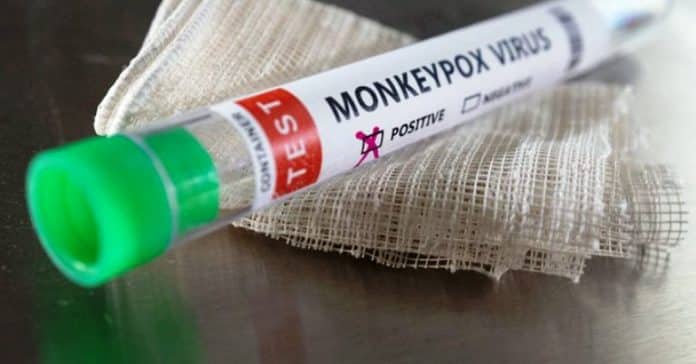A leading adviser to the World Health Organisation described the unprecedented outbreak of the rare disease monkeypox in developed countries as “a random event” that might be explained by risky sexual behaviour at two recent mass events in Europe.
In an interview with The Associated Press, Dr. David Heymann, who formerly headed WHO’s emergencies department, said the leading theory to explain the spread of the disease was sexual transmission among gay and bisexual men at two raves held in Spain and Belgium.
“We know monkeypox can spread when there is close contact with the lesions of someone who is infected, and it looks like sexual contact has now amplified that transmission,” said Heymann.
That marks a significant departure from the disease’s typical pattern of spread in central and western Africa, where people are mainly infected by animals like wild rodents and primates and outbreaks have not spilled across borders.
Madrid’s senior health official said on Monday that the Spanish capital has recorded 30 confirmed cases so far. Enrique Ruiz Escudero said authorities are investigating possible links between a recent Gay Pride event in the Canary Islands, which drew some 80,000 people, and cases at a Madrid sauna.
Monkeypox typically causes fever, chills, rash, and lesions on the face or genitals. It can be spread through close contact with an infected person or their clothing or bedsheets, but sexual transmission has not yet been documented.
Most people recover from the disease within several weeks without requiring hospitalisation. Vaccines against smallpox, a related disease, are also effective in preventing monkeypox and some antiviral drugs are being developed.
Other scientists have pointed out that it will be difficult to disentangle whether it is sex itself or the close contact related to sex that has driven the recent spread of monkeypox across Europe.
“By nature, sexual activity involves intimate contact, which one would expect to increase the likelihood of transmission, whatever a person’s sexual orientation and irrespective of the mode of transmission,” said Mike Skinner, a virologist at Imperial College London.
U.K. officials have said “a notable proportion” of the cases in Britain and Europe have been in young men with no history of travel to Africa and who are gay, bisexual or have sex with men.
Authorities in Portugal and Spain also said their cases were in men who mostly had sex with other men and whose infections were picked up when they sought help for lesions at sexual health clinics.
Heymann, who is also a professor of infectious diseases at the London School of Hygiene and Tropical Medicine, said the monkeypox outbreak was likely a random event that might be traceable to a single infection.
“It’s very possible there was somebody who got infected, developed lesions on the genitals, hands or somewhere else, and then spread it to others when there was sexual or close, physical contact,” Heymann hypothesized. “And then there were these international events that seeded the outbreak around the world, into the U.S. and other European countries.”
He emphasized that the disease was unlikely to trigger widespread transmission.
“This is not COVID,” he said. “We need to slow it down, but it does not spread in the air and we have vaccines to protect against it.”








